
Anxiety medications are pharmaceutical drugs prescribed to help manage and alleviate symptoms of anxiety disorders. These medications can be categorized into several classes, each with its own mechanism of action.
What are the common types of anxiety medications?
The most common classes of anxiety medications include:
- Benzodiazepines: These medications, such as alprazolam (Xanax), diazepam (Valium), and lorazepam (Ativan), work by enhancing the effects of a neurotransmitter called gamma-aminobutyric acid (GABA). GABA has a calming effect on the brain, helping to reduce excessive neuronal activity and alleviate anxiety.
- Selective Serotonin Reuptake Inhibitors (SSRIs): Examples include fluoxetine (Prozac), sertraline (Zoloft), and escitalopram (Lexapro). SSRIs primarily increase the levels of serotonin, a neurotransmitter associated with mood regulation, in the brain. They are often used for various anxiety disorders, including generalized anxiety disorder (GAD), social anxiety disorder, and panic disorder.
- Serotonin-Norepinephrine Reuptake Inhibitors (SNRIs): Medications like venlafaxine (Effexor) and duloxetine (Cymbalta) work by increasing the levels of both serotonin and norepinephrine. SNRIs are commonly prescribed for generalized anxiety disorder and other anxiety-related conditions.
- Tricyclic Antidepressants (TCAs): Although less commonly prescribed for anxiety due to their side effects, TCAs like amitriptyline and imipramine may be used when other medications are ineffective. They influence serotonin and norepinephrine levels in the brain.
- Beta-Blockers: Medications like propranolol are not traditional anxiety medications, but they are sometimes used to manage physical symptoms of anxiety, such as rapid heartbeat and trembling. They work by blocking the effects of adrenaline.
How do antipsychotic medications sometimes treat anxiety?
Antipsychotic medications, primarily developed to manage symptoms of psychosis, are occasionally used to treat anxiety, especially in situations where other standard treatments have not been effective. The mechanism by which antipsychotics may help alleviate anxiety is not fully understood, and their use in this context is considered off-label. Here are some ways antipsychotic medications may sometimes be used to treat anxiety:
- Sedative Properties: Some antipsychotics, particularly those in the class of atypical antipsychotics, have sedative properties. This can help calm hyperarousal and agitation associated with severe anxiety. Sedation may contribute to a reduction in physical symptoms of anxiety, such as restlessness or muscle tension.
- Dopamine Modulation: Antipsychotics primarily work by blocking dopamine receptors in the brain. While their main use is in conditions where there is an excess of dopamine activity (such as schizophrenia), the modulation of dopamine pathways may influence mood and anxiety regulation.
What are the potential side effects of benzodiazepines, a class of anxiety medication?
- Drowsiness: Benzodiazepines can cause drowsiness and sedation, which may impair cognitive and motor functions.
- Dizziness: Some individuals may experience dizziness or lightheadedness, especially when standing up quickly.
- Cognitive Impairment: Benzodiazepines can affect memory and concentration, leading to cognitive impairment.
- Coordination Issues: These medications may cause coordination problems, making activities such as driving or operating machinery risky.
- Fatigue: Feelings of fatigue and lethargy are common side effects of benzodiazepines.
- Gastrointestinal Issues: Nausea and gastrointestinal discomfort may occur in some individuals.
- Blurred Vision: Benzodiazepines can cause blurred or double vision.
- Paradoxical Reactions: In rare cases, some people may experience paradoxical reactions, where the medication has the opposite effect, leading to increased anxiety, agitation, or aggression.
How long does it typically take for anxiety medication to start working?
The onset of action for anxiety medication can vary depending on the specific type of medication and individual factors. Here are general timelines for some common classes of anxiety medications:
- Benzodiazepines: These medications often provide rapid relief of symptoms and may start working within 30 minutes to an hour after taking them. However, they are typically recommended for short-term use due to the risk of dependence.
- Selective Serotonin Reuptake Inhibitors (SSRIs) and Serotonin-Norepinephrine Reuptake Inhibitors (SNRIs): SSRIs and SNRIs generally take several weeks to start showing significant therapeutic effects. It’s common for individuals to notice an improvement in symptoms after 4 to 6 weeks of consistent use. However, maximum benefits may take a few months.
- Tricyclic Antidepressants (TCAs): Similar to SSRIs, TCAs may take several weeks to start working effectively. Improvement in symptoms is usually noticed after a few weeks, with maximum benefits seen after several months.
What are the different types of anxiety disorders recognized by mental health professionals?
Mental health professionals recognize several types of anxiety disorders, each characterized by distinct symptoms and features. The Diagnostic and Statistical Manual of Mental Disorders, Fifth Edition (DSM-5), which is a widely used classification system in the field of mental health, identifies several primary anxiety disorders. Here are some of the major types:
- Generalized Anxiety Disorder (GAD): Individuals with GAD experience excessive and persistent worry and anxiety about a variety of everyday things. This chronic worrying is often disproportionate to the actual circumstances and can be challenging to control.
- Panic Disorder: Panic disorder is characterized by recurrent and unexpected panic attacks, which are sudden episodes of intense fear accompanied by physical symptoms like palpitations, sweating, trembling, and a feeling of impending doom. Individuals with panic disorder often fear having more panic attacks.
- Social Anxiety Disorder (Social Phobia): Social anxiety disorder involves an intense fear of social situations and scrutiny by others. Individuals with this disorder may fear being embarrassed or humiliated, leading to avoidance of social interactions.
- Specific Phobias: Specific phobias are characterized by an intense and irrational fear of a specific object, situation, or activity. Common phobias include fear of heights, animals, flying, or needles. Avoidance of the feared stimulus is a typical response.
- Obsessive-Compulsive Disorder (OCD): OCD is marked by intrusive, unwanted thoughts (obsessions) and repetitive behaviors or mental acts (compulsions) performed to alleviate anxiety or prevent a feared event. The compulsions are often time-consuming and can significantly interfere with daily life.
What are the common symptoms of generalized anxiety disorder (GAD)?
Generalized Anxiety Disorder (GAD) is characterized by persistent and excessive worry about various aspects of life, even when there is little or no apparent reason for concern. The worry is often difficult to control and can interfere significantly with daily functioning. The symptoms of GAD can manifest both physically and emotionally. Common symptoms of Generalized Anxiety Disorder include:
- Excessive Worry: Persistent and uncontrollable worry about everyday things, including health, work, family, finances, and other issues. The worry is often unrealistic or out of proportion to the situation.
- Restlessness or Feeling On Edge: A constant feeling of restlessness, nervousness, or being on edge. Individuals with GAD may have a sense of impending doom or a feeling that something bad is about to happen.
- Fatigue: Feeling easily fatigued or exhausted, even when there is no apparent physical reason for the tiredness.
- Difficulty Concentrating: Trouble concentrating or finding that the mind goes blank. Individuals with GAD may have difficulty focusing on tasks and making decisions.
- Muscle Tension: Physical symptoms such as muscle tension, tightness, or aches. This tension may be generalized or concentrated in specific areas of the body, such as the neck and shoulders.
- Irritability: Feeling irritable or easily annoyed, and having a low tolerance for uncertainty or frustration.
What are anxiety disorders?
Anxiety disorders are a group of mental health conditions characterized by excessive and persistent worry, fear, or anxiety that significantly interferes with daily life. These disorders can manifest in various ways, and the specific symptoms and severity can vary among individuals. Common features of anxiety disorders include heightened physiological arousal, persistent and intrusive thoughts, and avoidance behaviors. The Diagnostic and Statistical Manual of Mental Disorders, Fifth Edition (DSM-5), which is widely used by mental health professionals, identifies several specific anxiety disorders
What is social anxiety disorder risk factor?
all social anxiety factor shown in this image.

What treatments are available for anxiety disorders?
Several effective treatments are available for anxiety disorders, and the choice of treatment depends on the specific type and severity of the anxiety disorder, as well as individual factors. Common treatments for anxiety disorders include:
Psychotherapy (Counseling or Talk Therapy):
- Cognitive-Behavioral Therapy (CBT): CBT is a widely used and evidence-based therapeutic approach for anxiety disorders. It focuses on identifying and changing negative thought patterns and behaviors associated with anxiety. Exposure therapy, a form of CBT, is particularly effective for specific phobias, social anxiety disorder, and panic disorder.
- Acceptance and Commitment Therapy (ACT): ACT helps individuals accept their thoughts and feelings without judgment while committing to actions aligned with their values. It is effective for various anxiety disorders.
Medications:
- Selective Serotonin Reuptake Inhibitors (SSRIs): SSRIs, such as fluoxetine, sertraline, and escitalopram, are commonly prescribed for various anxiety disorders. They increase serotonin levels in the brain, helping to regulate mood.
- Serotonin-Norepinephrine Reuptake Inhibitors (SNRIs): Medications like venlafaxine and duloxetine work on both serotonin and norepinephrine levels and are used to treat generalized anxiety disorder.
Mind-Body Techniques:
- Mindfulness Meditation: Mindfulness-based approaches, including mindfulness meditation and mindfulness-based stress reduction (MBSR), can help individuals manage anxiety by focusing on the present moment.
- Yoga and Relaxation Techniques: Practices that promote relaxation, such as yoga, deep breathing exercises, and progressive muscle relaxation, can be helpful in reducing overall anxiety levels.
What role does genetics play in anxiety disorders?
Genetics can play a role in the development of anxiety disorders. While the precise interplay between genetic and environmental factors is complex and not fully understood, research suggests a hereditary component in the vulnerability to anxiety disorders. Here are some key points regarding the role of genetics in anxiety disorders:
- Family History: Individuals with a family history of anxiety disorders are more likely to be at an increased risk of developing an anxiety disorder themselves. The risk may be higher if first-degree relatives, such as parents or siblings, have a history of anxiety.
- Genetic Predisposition: There is evidence to suggest a genetic predisposition to anxiety disorders. Certain genetic variations or polymorphisms may contribute to an individual’s susceptibility to anxiety.
- Heritability Estimates: Twin, family, and adoption studies have been conducted to estimate the heritability of anxiety disorders. Heritability refers to the proportion of the variation in a trait (in this case, anxiety) that can be attributed to genetic factors. Research suggests that heritability plays a significant role in various anxiety disorders, including generalized anxiety disorder (GAD), panic disorder, and social anxiety disorder.
How prevalent are anxiety disorders globally?
Anxiety disorders are common worldwide, and they affect people of all ages, genders, and backgrounds. The prevalence of anxiety disorders can vary across countries and regions, and estimates may be influenced by cultural, social, and methodological factors. Global data on the prevalence of anxiety disorders provide a general understanding of the scope of the issue, but it’s important to note that variations exist.
According to the World Health Organization (WHO) and other sources, anxiety disorders are among the most prevalent mental health conditions globally. Here are some key points regarding the prevalence of anxiety disorders:
- Global Burden: Anxiety disorders contribute significantly to the global burden of disease. They are recognized as a leading cause of disability worldwide.
- Lifetime Prevalence: Estimates of lifetime prevalence, which represent the proportion of people who will experience an anxiety disorder at some point in their lives, vary across studies. The overall lifetime prevalence of anxiety disorders is often reported to be around 16-20%, indicating a substantial portion of the population may experience an anxiety disorder.
- Regional Variations: The prevalence of anxiety disorders can vary by region. Factors such as cultural norms, access to mental health services, and societal stressors contribute to these variations.
How do antipsychotic medications sometimes treat anxiety?
Antipsychotic medications, also known as neuroleptics, are primarily designed to manage symptoms of psychosis, such as hallucinations, delusions, and thought disorders. While their primary use is in the treatment of conditions like schizophrenia and bipolar disorder, antipsychotics may also be prescribed off-label to manage severe anxiety symptoms. The use of antipsychotics in anxiety treatment is generally considered when other standard treatments, such as selective serotonin reuptake inhibitors (SSRIs) or benzodiazepines, have not been effective. Here are some ways antipsychotic medications may play a role in managing anxiety:
- Augmentation Therapy: Antipsychotics may be prescribed as an augmentation strategy in addition to standard anxiety medications when the response to initial treatments is inadequate. Adding an antipsychotic to the treatment regimen can enhance the overall therapeutic effect.
- Sedative Properties: Some antipsychotics, particularly those in the class of atypical antipsychotics, have sedative properties. This can help calm hyperarousal and agitation associated with severe anxiety.
- Stabilizing Mood: Antipsychotics may help stabilize mood and reduce emotional fluctuations, which can be beneficial in managing anxiety, especially in cases where anxiety is comorbid with mood disorders.
How do beta-blockers help with anxiety?
Beta-blockers are a class of medications that primarily work by blocking the effects of adrenaline (epinephrine) in the body. While their main use is in the treatment of cardiovascular conditions like hypertension (high blood pressure) and certain heart conditions, beta-blockers are also sometimes prescribed to help manage certain anxiety symptoms, particularly those associated with physiological arousal. Here’s how beta-blockers can help with anxiety:
- Reducing Physiological Symptoms: Beta-blockers block the action of adrenaline on beta receptors in the body. Adrenaline is a hormone and neurotransmitter that plays a key role in the “fight or flight” response. By blocking the effects of adrenaline, beta-blockers can reduce physiological symptoms associated with anxiety, such as increased heart rate, trembling, and sweating.
- Managing Performance Anxiety: Beta-blockers are often used to help individuals manage symptoms of performance anxiety, especially in situations where physical symptoms might interfere with performance. This can include public speaking, musical or theatrical performances, and other high-pressure situations. By preventing the physical manifestations of anxiety, beta-blockers may help individuals feel more in control and focused.

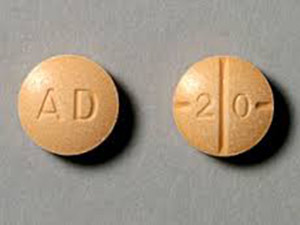






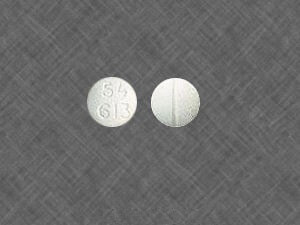







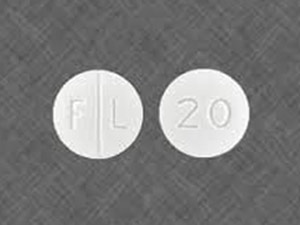



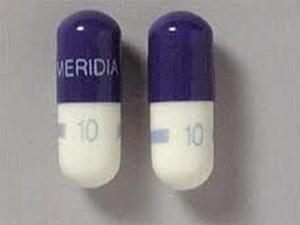

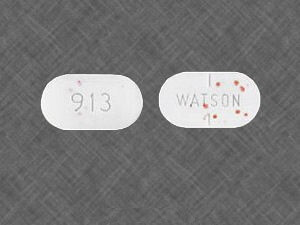
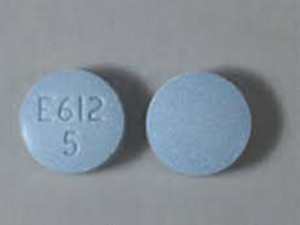

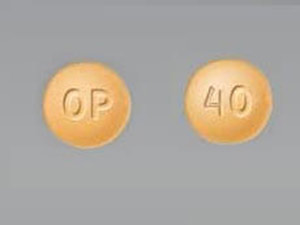

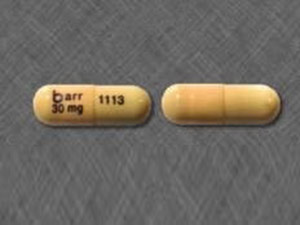


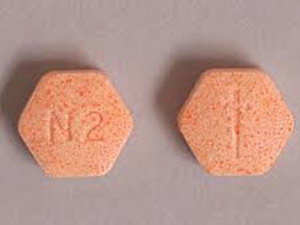



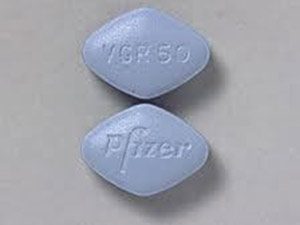

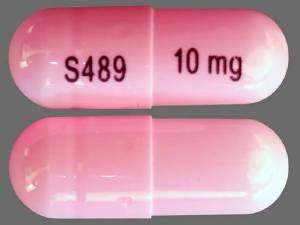

Leave a Reply